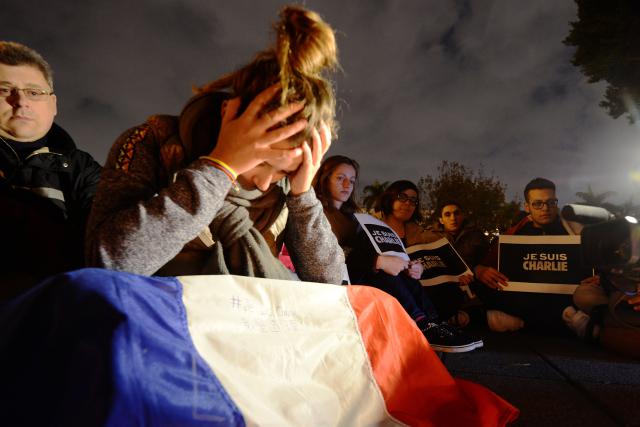“Europe Rediscovers Nationalism“, STRATFOR Global Intelligence, Analysis, 11 January.
Analysis
In his latest novel, French writer Michel Houellebecq presents a controversial situation: The year is 2022, and France has become an Islamicized country where universities have to teach the Koran, women have to wear the veil and polygamy is legal. The book, which created a stir in France, went on sale Jan. 7. That day, a group of terrorists killed 12 people at the headquarters of French satirical magazine Charlie Hebdo.
Also on Jan. 7, German Chancellor Angela Merkel met British Prime Minister David Cameron in London. Although the formal reason for the meeting was to discuss the upcoming G-7 summit, the two leaders also discussed Cameron’s proposals to limit migration in Europe. Finally, a much less publicized event took place in Germany that day: A group of politicians from the Euroskeptic Alternative for Germany party met with members of Pegida, the anti-Islam protest group that has staged large protests in Dresden and minor protests in other German cities.
The date of these four episodes is only a coincidence, but the issues involved are not. A growing number of Europeans believe that people from other cultures are threatening their national identities and livelihoods. The emergence of Germany’s Pegida movement, which opposes the “Islamization” of Germany, the terrorist attack in Paris and the recent attacks against mosques in Sweden put the focus on Muslims. But the Europeans’ fear and mistrust of “foreigners” is a much broader phenomenon that goes beyond the issue of Islam-related violence. What is actually happening is that Europe is rediscovering nationalism.
The Limits of European Integration
Europe traditionally has been a cradle for nationalism. From the romantic nationalism of the 19th century to the totalitarianism of the 20th century, Europeans have long defined themselves by a strong sentiment of national belonging, often linked to language, ethnicity and religion, and distrust of foreigners. The love for the place you were born, the trust of the people who surround you, and the fear of what strangers could do to you and your community is a basic human feeling. But in Europe, nationalism is particularly notable for the sheer scale of death and destruction it historically has brought to the Continent.
Relevant posts:
- Bosoni, A. (2014) “Traveling Through Multiple Europes“, STRATFOR: Geopolitical Weekly, 04 November.
- Interview with R. Keohane (2014) Five minutes with Robert O. Keohane: “We shouldn’t fool ourselves by believing that global governance will soon be made democratic”, LSE EUROPP, 05 November.
- Fischer, J. (2014) “Europe’s Nationalists on the March“, Project Syndicate, 31 May.




